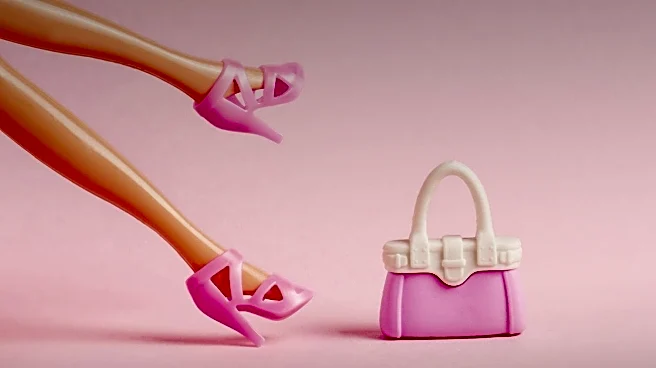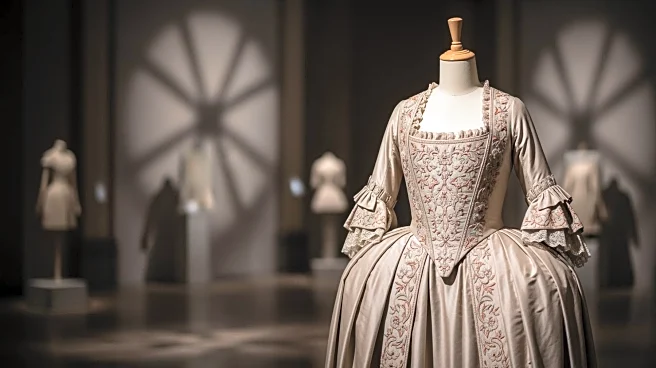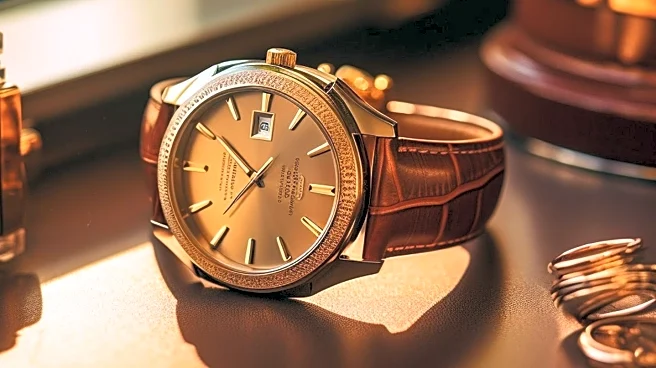What's Happening?
Vogue has released an article detailing minimalist fashion trends for the fall season, emphasizing the importance of foundational wardrobe pieces that offer versatility and elegance. The article suggests that minimalist fashion is centered around ease and intention,
often starting with a neutral color palette and balanced proportions. Key pieces highlighted include draped blouses, car coats, slim-leg trousers, and structured blazers, which are designed to transition seamlessly from day to night. The article also notes the influence of fashion icons like Carolyn Besette-Kennedy and Gwyneth Paltrow, who have mastered the art of minimalist style through enduring silhouettes and high-quality fabrics.
Why It's Important?
The focus on minimalist fashion reflects a broader trend towards sustainability and intentionality in consumer choices. By investing in versatile, high-quality pieces, consumers can reduce waste and make more thoughtful purchases. This shift could impact the fashion industry by encouraging brands to prioritize quality over quantity, potentially leading to more sustainable production practices. Additionally, the emphasis on timeless styles may influence consumer behavior, steering them away from fast fashion and towards more durable, long-lasting clothing options.
What's Next?
As minimalist fashion continues to gain popularity, it is likely that more brands will adopt sustainable practices and focus on creating versatile pieces that appeal to consumers seeking longevity in their wardrobe. Fashion retailers may also adjust their marketing strategies to highlight the benefits of investing in high-quality, timeless clothing. This trend could lead to increased collaboration between fashion brands and sustainability advocates, further promoting eco-friendly practices within the industry.
Beyond the Headlines
The minimalist fashion movement may also have cultural implications, as it encourages individuals to embrace simplicity and intentionality in their personal style. This shift could lead to a broader cultural appreciation for minimalism, influencing other areas such as interior design and lifestyle choices. Additionally, the focus on sustainability aligns with growing environmental concerns, potentially fostering a more eco-conscious consumer base.
















